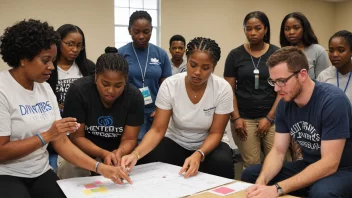1. Build Strong Relationships
Fostering deep connections with family and friends provides a sense of belonging and support. Strong relationships can significantly reduce feelings of loneliness and improve mental health.
2. Engage in Community Activities
Participating in local events and community service projects not only helps others but also strengthens your social network. Engaging with others who share similar interests can lead to lasting friendships.
3. Leverage Technology for Connection
In today's digital age, technology can help maintain relationships. Utilize social media and video calls to stay connected with loved ones, especially those who live far away.
4. Join Support Groups
Support groups provide a safe space to share experiences and feelings with others facing similar challenges. This shared understanding can be incredibly validating and therapeutic.
5. Volunteer for a Cause
Volunteering is a powerful way to meet new people while contributing to a cause you care about. The shared passion can create strong bonds and a sense of purpose.
6. Attend Workshops and Classes
Learning new skills in a group setting allows you to connect with others while improving your mental wellbeing. Whether it's art, cooking, or exercise classes, these environments foster social interaction.
7. Practice Active Listening
Enhancing your communication skills by practicing active listening can deepen your connections. By showing genuine interest in others, you can strengthen your relationships and boost your own mental health.
Summary: Social connections play a vital role in enhancing mental wellbeing. From building strong relationships to engaging in community activities, these connections not only provide support but also foster a sense of belonging. By prioritizing social interactions, individuals can significantly improve their mental health and overall quality of life.






